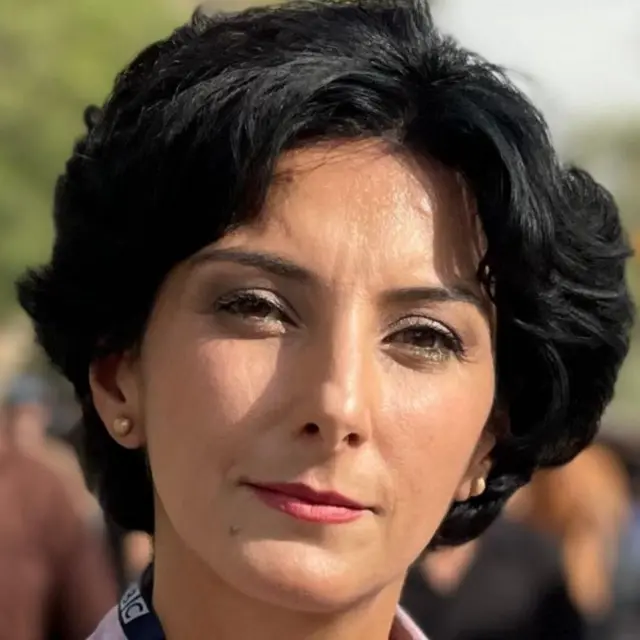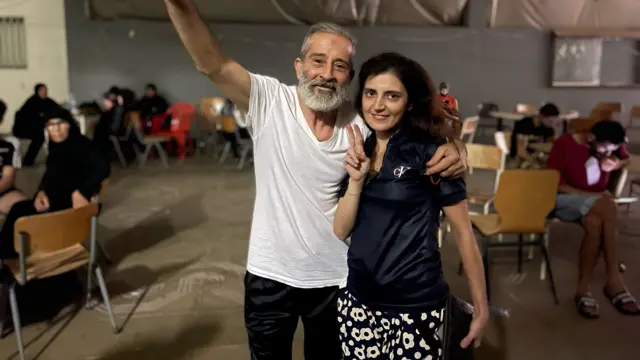Exiled Hezbollah supporters’ combined emotions about Iran assault Published at 20:01 UK Summer Time
20:01 BST
 Nafice Konavald
Nafice Konavald
BBC Persian Middle East correspondent, primarily based in Beirut
 picture caption,
picture caption,
Bell and Mohammed on the shelter
“I favored Iran’s actions, however I’ve been ready for it for the reason that struggle began. That’s not the case now,” says Bell, a 32-year-old Lebanese lawyer.
I met her at a faculty that shelters a whole bunch of people that have fled southern Lebanon and Dahieh, a suburb in southern Beirut.
Mr Bell needed to depart his dwelling in Hallett Lake, Dahie, an space that has been closely bombed in current days.
“I feel it is too late. We nonetheless cannot imagine we misplaced Seyed Hasan,” she says.
Bell was speaking about Hezbollah chief Hassan Nasrallah, who was killed in an Israeli airstrike final Friday.
She instructed me she simply felt “glad.”
Her uncle, Mohammed, says he’s “pleased with Iran.”

At evening in school, everybody watches the information on their cell telephones about developments after the Iranian assault.
Clearly, there are combined emotions about Iran’s actions.
“I’m glad to see the precise consequence. If it is something like their assault in April, it means nothing to us.
“There is not any level in simply digging trenches in a number of army bases except you kill the Israeli commander and supreme chief,” Abu Ahmad tells me.
He additionally fled Dahieh and mentioned that his and his brother’s houses had been severely broken within the airstrike.

